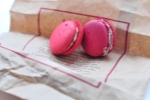
高一英语报道类作文套用模板【一】
一、英文书信的结构
第一节英文书信的结构
英文书信一般由以下六部分组成:信头、信内地址、称呼、正文、结尾、签名。
1.信头(Heading)
信头是指发信人的地址和日期,通常写在第一页的右上角。行首可以齐头写,也可以逐行缩进写。地址的书写顺序由小到大:门牌号、街道、城市、省(州)、邮编、国名,最后写发信日期。私人信件一般只写寄信日期即可。例如:
123 Tianhe Road
Tianhe District
Guangzhou 510620
Guangdong Province
P. R. C.
Jan 8,20xx
2.信内地址(Inside Address)
信内地址要写收信人的姓名和地址。在公务信件中要写明这一项,在私人信件中,这一项常常省略。该项写在写信日期下一行的左上角,格式与寄信人地址一样。
3.称呼(Salutation)
称呼是对收信人的`称谓,应与左边线对齐,写在收信人姓名、地址下面1—2行处。在称呼后,英国人常用逗号,美国人则常用冒号。在私人信件中可直呼收信人的名字,但公务信件中一定要写收信人的姓。大部分信件在称呼前加“Dear”。如:
Dear Professor/Prof。 Bergen:
Dear Dr。 Johnson,
对不相识的人可按性别称呼:
Dear Sir:或Dear Madam:Dear Ladies。
如果不知收信人的性别则可用Dear Sir or Madam:
4.正文(Body of Letter)
正文是书信的主体。与中文信件不同的是,英文书信的正文的开头不是先写一些问候语,再阐明写信的目的,而是直接说明写信人的身份及写信的目的,然后提出写信人的情况、想法或要求,并加以必要的解释或说明。英文书信陈述目的时,应该直截了当,意思明确,层次清楚,言简意赅。
书信正文的第一句话或第一段,通常被称为起首语。一般说来,人们习惯用一些客套的写法作为书信正文的起始,即先将对方来信的日期、主题加以简单描述,以便使对方一看便知该信是回答哪一封信的。如果是第一次给别人写信,也可用开头语作必要的自我介绍,并表明自己写信的主要目的。
5.结尾礼词(Complimentary Close)
公务信件的结尾礼词包含两部分:发信人的结尾套语与署名。结
尾套语写在签名上面一行,第一个字母要大写,套语结尾后面要加逗号。在公务信件中,发信人常用的结尾套语有:
Yours truly,Yours sincerely,Respectfully yours,Cordially yours,Yours cordially等。
私人信件中,发信人常用的结尾套语有:
Sincerely yours,Lovely yours,Your lovely,Your loving son/daughter等。
6. 签名(Signature)
写信人的签名常位于结尾礼词正下方一二行。除非是给很熟悉的人写信,签名一般须写出全名。签名常常较潦草,不易辨认,因此在签名的正下方须打印出全名。
第二节书信作文的出题形式和写作要领
1990年到20xx年1月之间的四级考试作文题中,书信作文共出现两次(20xx年6月和20xx年1月)。下面,我们先来看看20xx年6月四级考试的作文题:
Directions:For this part,you are allowed thirty minutes to write a letter。 Suppose you are Zhang Ying。 Write a letter to Xiao Wang,a schoolmate of yours who is going to visit you during the week—long holiday。 You should write at least 120 words according to the suggestion given below in Chinese:
1.表示欢迎
2.提出对度假安排的建议
3.提醒应注意的事项
A Letter to a Schoolmate
June 23,20xx
Dear Xiao Wang,
__________________________________
__________________________________
__________________________________.
Yours,
Zhang Ying
从上面的例子可见,书信作文不仅给出正文部分的内容的提纲,而且还给出书信各部分的结构的框架。也就是说,我们只要考虑如何表达提纲部分的内容,而不用考虑书信的结构。
在写书信作文时,首先要把书信正文的提纲内容细化,扩展成更细的英文提纲,然后用简洁、明了、礼貌、正确和得体的语言表达出细化了的提纲内容。例如前面的那封信就可以列出下面的提纲:Topic:A Letter to a SchoolmateQuestion:What are the holiday arrangements and points for attention?
Outline:
I.Extending my welcome
II.Holiday schedule
1.1st day – campus
2. 2nd day – the art gallery & music hall
3. 3rd day – mountain climbing4。 next 3 days – other places of interest(Swan Cave,Golden Lake?)
4. Last day – departure
III.Points for attention
1.Train number & time of arrival
2. Sunglasses
IV. Looking forward to seeing you。
1.Conclusion
范文:
A Letter to A Schoolmate
June 23,20xx
Dear Xiao Wang,
I’m very glad to learn that you’re going to visit me during the week—long holiday.My parents will also be happy to see you again.I am sure you will enjoy every minute here.
I have arranged our schedule for the holiday as follows.On the first day you arrive,I’ll show you around our campus. On the second day,we’ll visit the art gallery and the music hall. Next day,we’ll climb a hill in the northeastern part of the city.On the top of the hill,we can have a wonderful bird’s eye view of the city. During the next three days,we’ll make some short trips to some places of interest.
Yours,
Zhang Ying
高一英语报道类作文套用模板【二】
是写信人对收信人的称呼用语。位置在信内地址下方一、二行的地方,从该行的顶格写起,在称呼后面一般用逗号(英国式),也可以用冒号(美国式)。
(1)写给亲人、亲戚和关系密切的朋友时,用dear或my dear再加上表示亲属关系的称呼或直称其名(这里指名字,不是姓氏)。例如:my dear father,dear tom等。
(2)写给公务上的信函用dear madam,dear sir或gentleman(gentlemen)。注意:dear纯属公务上往来的客气形式。gentlemen总是以复数形式出现,前不加dear,是dear sir的复数形式。
(3)写给收信人的信,也可用头衔、职位、职称、学位等再加姓氏或姓氏和名字。例如:dear prof. tim scales, dear dr.john smith。
高一英语报道类作文套用模板【三】
低于结束语一至二行,从信纸中间偏右的地方开始,在结束语的正下方,在签完名字的下面还要有用打字机打出的名字,以便识别。职务、职称可打在名字的下面。当然,写给亲朋好友的信,就不必再打了。
高一英语报道类作文套用模板【四】
在正文下面的一、二行处,从信纸的中间偏右处开始,第一个词开头要大写,句末用逗号。不同的对象,结束语的写法也不同。
(1)写给家人、亲戚,用your loving grandfather,lovingly yours,lovingly等;
(2)写给熟人、朋友,用yours cordially,yours affectionately等;
(3)写业务信函用truely yours(yours truely),faithfully yours(yours faithfully)等;
(4)对上级、长辈用yours obediently(obediently yours),yours respectfully(respectfully yours)等。
高一英语报道类作文套用模板【五】
指发信人的姓名(单位名称)、地址和日期,一般写在信纸的右上角。一般公函或商业信函的信纸上都印有单位或公司的名称、地址、电话号码等,因此就只需在信头下面的右边写上写信日期就可以了。
英文地址的写法与中文完全不同,地址的名称按从小到大的顺序:第一行写门牌号码和街名;第二行写县、市、盛州、邮编、国名;然后再写日期。标点符号一般在每一行的末尾都不用,但在每一行的之间,该用的还要用,例如在写日期的时候。
日期的写法,如1997年7月30日,英文为:july 30,1997(最为普遍);july 30th,1997;30th july,1997等。1997不可写成97。
高一英语报道类作文套用模板【六】
Today is father s day, for so many years I ve been seekig a way to express my heartfelt thanks for all you have done for me. Here comes it!
Thank you for always being there sharing my life when I need you most. Whenever I encounter difficulties, I never feel alone and vulnerable, because you will keep me on the right path. I m blessed to have you.
Thank you for offering me education and teaching me how to be a man. You always inspire me not by words, but by what you have done! Your efforts in the work, your loyalty to your friends, your responsibility for the family and your persistence in the life have already set me good examples in my own life.
Thank you for always appreciating my work, no matter how tiny it is! You have made me realize that it s capacity not scores that really counts.
Dad, I love you and I will love you forever!
Yours beloved,
Li Ming
高一英语报道类作文套用模板【七】
我敬佩的.人是我的妈妈。她是一位英语老师。她很受学生的欢迎,因为她花了很多时间在功课上,而且很幽默。学生都很喜欢她的课。
My mum is not only a good teacher, but also a great mother. She is patient with me and always smiling while talking. My mum teaches me how to think independently and helps me to build up my confidence. When I have some difficulties in my studies, it is my mum who encourages me to work until I solve the problem. When I’m feeling sad or bad, it is also my mum who looks after me with care.
我的妈妈不仅是一位好老师,也是一位伟大的母亲。她对我很有耐心,说话时总是面带微笑。我妈妈教我如何独立思考,帮助我建立我的信心。当我在学习上有困难的,这是我妈妈鼓励我直到我解决问题。当我感到悲伤或糟糕的,也是妈妈照顾我。
I remember when I caught a fever at midnight last year, my mum took me to the hospital as fast as she could. When we got home after my injection, it was about 5 o’clock in the early morning. My mum only slept 2 hours because she had to wake up at 7 o’clock to prepare breakfast for me, and then she went to work. She must be very tired that day.
我记得当我去年在半夜发高烧,妈妈以最快的速度带我去医院。当我打完针回到家时,已经差不多凌晨五点。妈妈只睡了2个小时,因为她不得不在七点起床为我准备早餐,然后她去工作。她那天一定很累。
My mum is not very beautiful, but I admire her.
我的妈妈是不是很漂亮,但我敬佩她。











